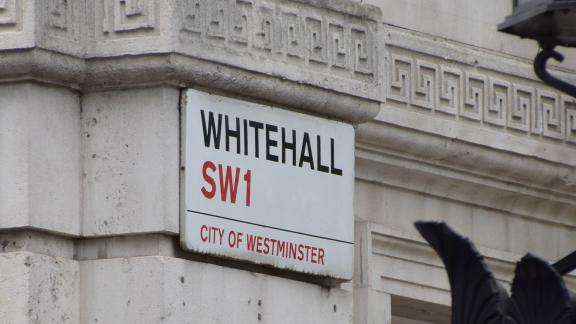Legislation must require clinical and lay members on ICS boards

With the Department of Health and Social Care's bill brought forward in parliament, health leaders have raised concerns with the NHS Confederation that require the government’s attention, writes Louise Patten, director of the ICS Network and chief executive of NHS Clinical Commissioners (NHSCC).
Bringing forward new legislation on the NHS, which former chancellor Nigel Lawson famously described as ‘the closest thing the English people have to a religion,’ is understandably difficult. Many of those planning and delivering services still vividly remember the upheaval of the Health and Social Care Act 2012 and there are still widely held public concerns on the issue of privatisation.
When you add to this mix the pressures of the pandemic and exhausted NHS workforce, it makes it all the more notable that the recent health and care white paper has broadly been welcomed by health leaders.
The increasingly complex challenges facing the system over the coming years – such as bringing care closer to patients’ homes, measurably addressing health inequalities and enhancing patient experience of care pathways – are not easily addressed through the existing framework, which broadly has aimed to incentivise competition between services and focus on individual organisational performance.
Rather, they require closer collaboration, risk-sharing and flexibility within a wider health and care partnership, which the white paper proposals will hopefully facilitate.
Four areas of concern
While the direction of travel is positive, there are four key areas of concern that health leaders in England have raised with the NHS Confederation in a new report, and warrant the government’s careful consideration.
Increasing ministerial powers over the NHS
The first area is increasing the powers of the Secretary of State over the running of the NHS. Over recent decades and through successive reforms, the pendulum has swung between strong ministerial involvement in the running of the NHS and more independence for the service.
The 2012 reforms moved the pendulum towards allowing greater autonomy for the NHS and by freeing it from political intervention. While it is right for the NHS to be accountable to ministers, we are at risk of it swinging too far the other way.
Health leaders have warned that there should be clear checks and balances on new powers, such as those relating to earlier secretary of state intervention in local service reconfigurations. For instance, the minimum level of supporting information to be considered should include local clinical advice and, along with evidence from the ICS in question, this should be made public.
Governance and accountability
The second area is governance and accountability. It is welcome that there have been efforts to formalise partnership working between health services and local authorities within ICSs, which the NHS Confederation had been calling for. However, there is widespread uncertainty about the division of accountability, as well as the intended relationship between the ICS NHS body and wider health and care partnership, which are set to constitute the two component parts of an ICS.
While there should be allowances for governance within both, there does need to be clarity on what the statutory responsibility of each body is within the ICS. Without this, there is a real risk of conflict or stalemate within systems in future.
Similarly, leaders have raised that there should be a statutory requirement for ICSs to have lay membership and clinical leadership representation at ICS board level, rather than just mandated ‘clinical advice’.
New statutory duty
Third, the white paper sets out the government’s intention to introduce a new statutory duty on partners within systems to collaborate, which is welcome. However, the imminent legislation will need to move beyond the vagueness in the white paper, and provide clarity on the implications it would have for their organisations, including foundation trusts, as well as on what specifically this will cover. A shared aim between health and care partners on addressing local health inequalities has been strongly suggested by the system.
Ambitious timescales
Finally, the white paper has set out ambitious timescales for ICSs to become statutory bodies by April 2022. This is an ambitious timescale and there are concerns about nascent statutory ICSs being overloaded with statutory responsibilities too quickly, including immediately taking over certain commissioning responsibilities from NHS England and NHS Improvement, which must be built up over time.
Similarly, the government will need to take timely action to resolve ongoing issues that threaten implementation timescales, including around appointments and boundaries, if this deadline is to be kept.
Overall, there has been a groundswell of support across our membership for the notion that now is the right time to embed integration into the architecture and address the drawbacks of the existing framework. In this respect, the ‘battle’ has already been won, but the devil will be in the detail of the legislation and any supporting implementation guidance.
Louise Patten is director of the NHS Confederation’s ICS Network and chief executive of NHS Clinical Commissioners. You can follow Lou and NHSCC on Twitter: @LouisePatten1 @NHCCPress
This blog appeared in the HSJ on 31 March 2021.


